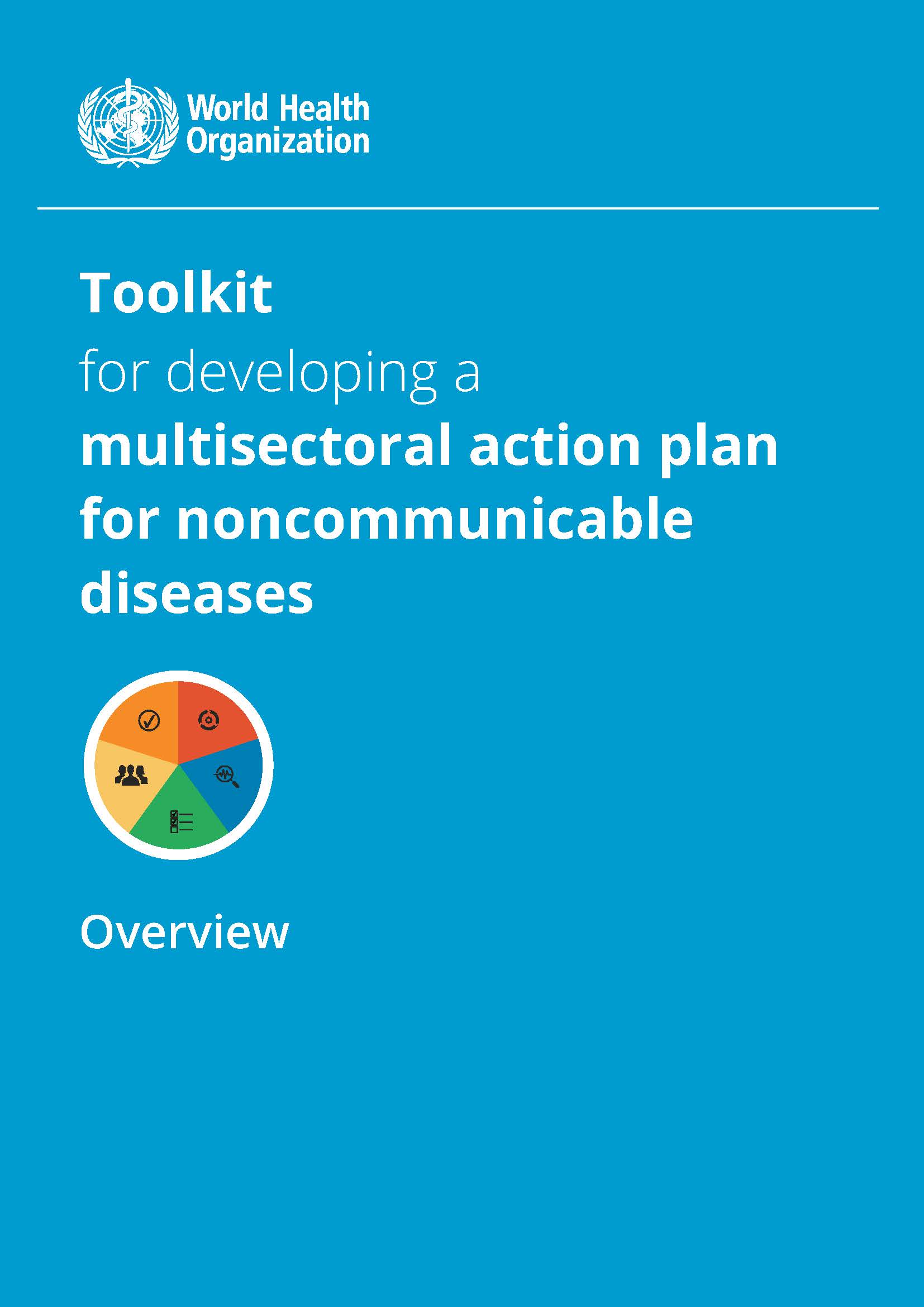
Toolkit for developing a multisectoral action plan for noncommunicable diseases: Overview
Publication date: 2022
This toolkit is a "how to" guide for developing, implementing and evaluating a multisectoral action plan for prevention and control of NCDs. It is targeted at policy-makers, planners and programme managers, and is intended to help countries, provinces and cities meet the requirements for achieving global and national NCD targets and the Sustainable Development Goals. The toolkit takes the user through a series of actions related to the development of a multisectoral action plan ("MSAP development actions"), and provides forms and a template framework for users to complete as they undertake these actions. Developing a multisectoral action plan involves establishing health needs and engaging relevant stakeholders before determining the actions to take, identifying and prioritizing interventions, deciding on ways to address NCDs while establishing support and resources for prevention and control, and evaluating progress in implementing the plan.
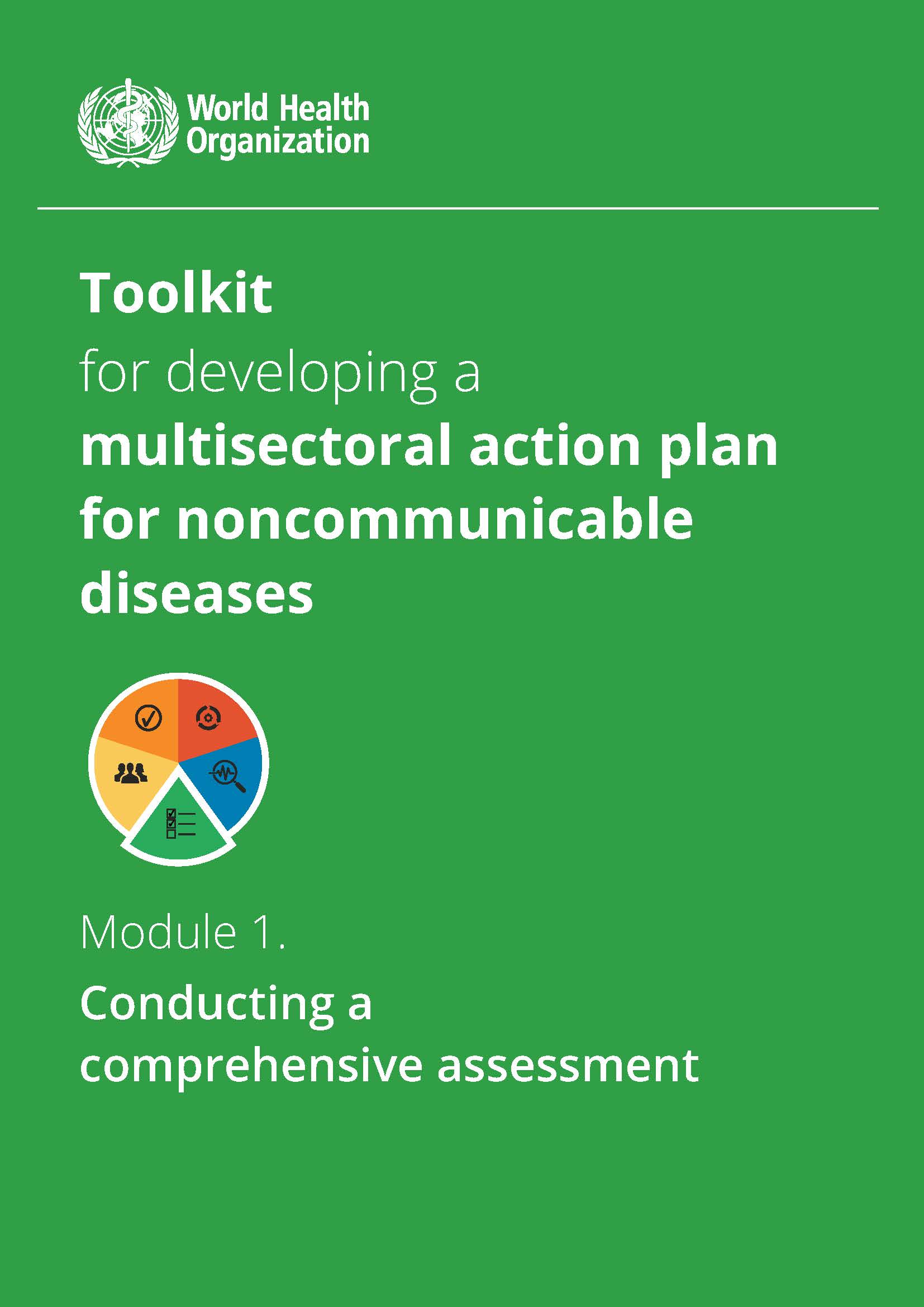
Toolkit for developing a multisectoral action plan for noncommunicable diseases: Module 1: Conducting a comprehensive assessment
Publication date: 2022
One of the first steps in developing a multisectoral action plan (MSAP) is to use a situation analysis to provide a comprehensive assessment of the health needs, prevailing risks and the context of the area to which the plan will apply. This will help countries, regions, provinces or cities intending to create a multisectoral action plan to align with the global commitments on targeting the four major NCDs: cardiovascular disease, diabetes, cancer and chronic respiratory diseases.
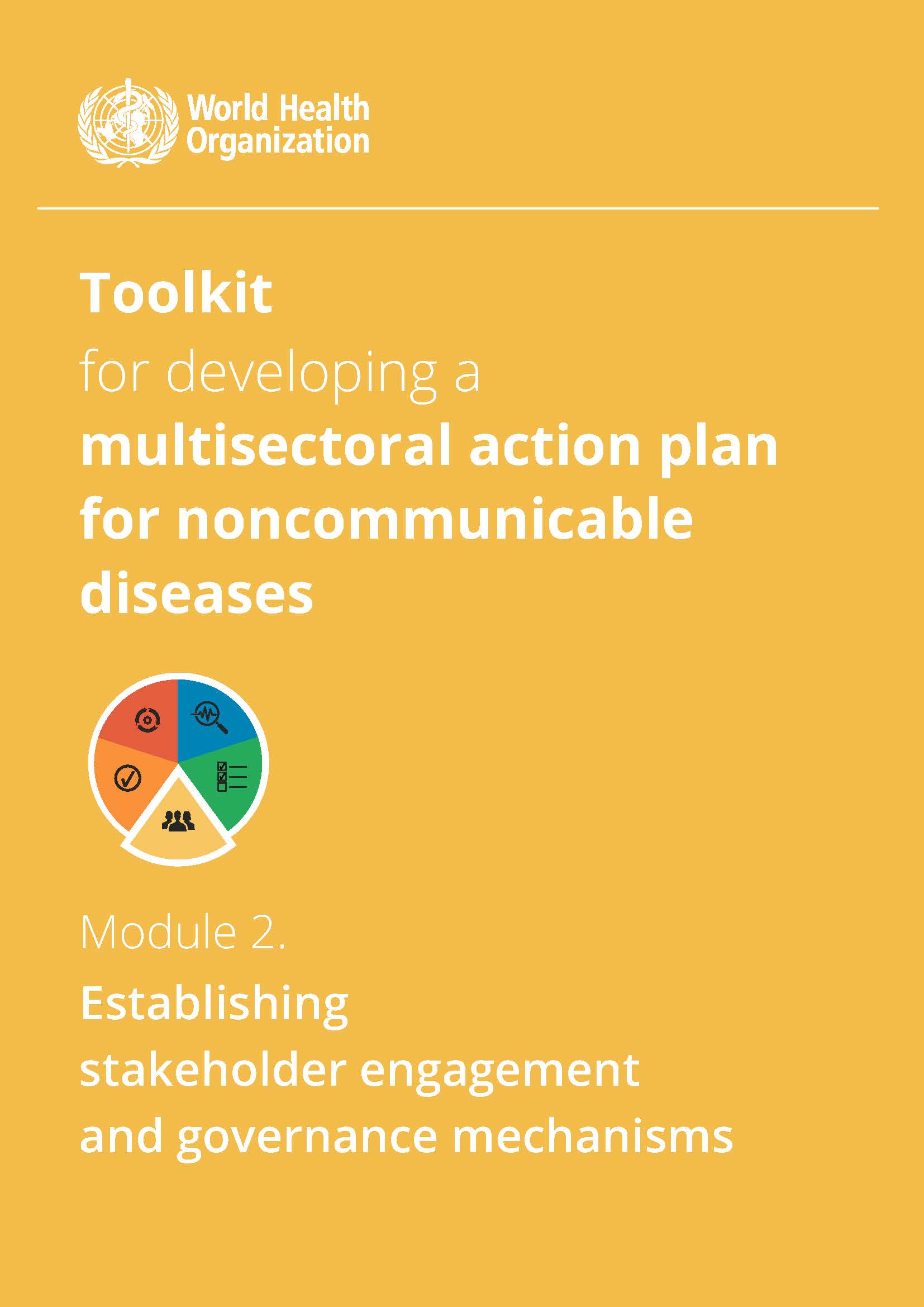
Toolkit for developing a multisectoral action plan for noncommunicable diseases: Module 2: Establishing stakeholder engagement and governance mechanisms
Publication date: 2022
To maintain a structured and well-organized implementation plan it is important to have a lead agency or sector. The ministry of health or a similar authority in government will be critical in facilitating development and implementation of the multisectoral action plan.
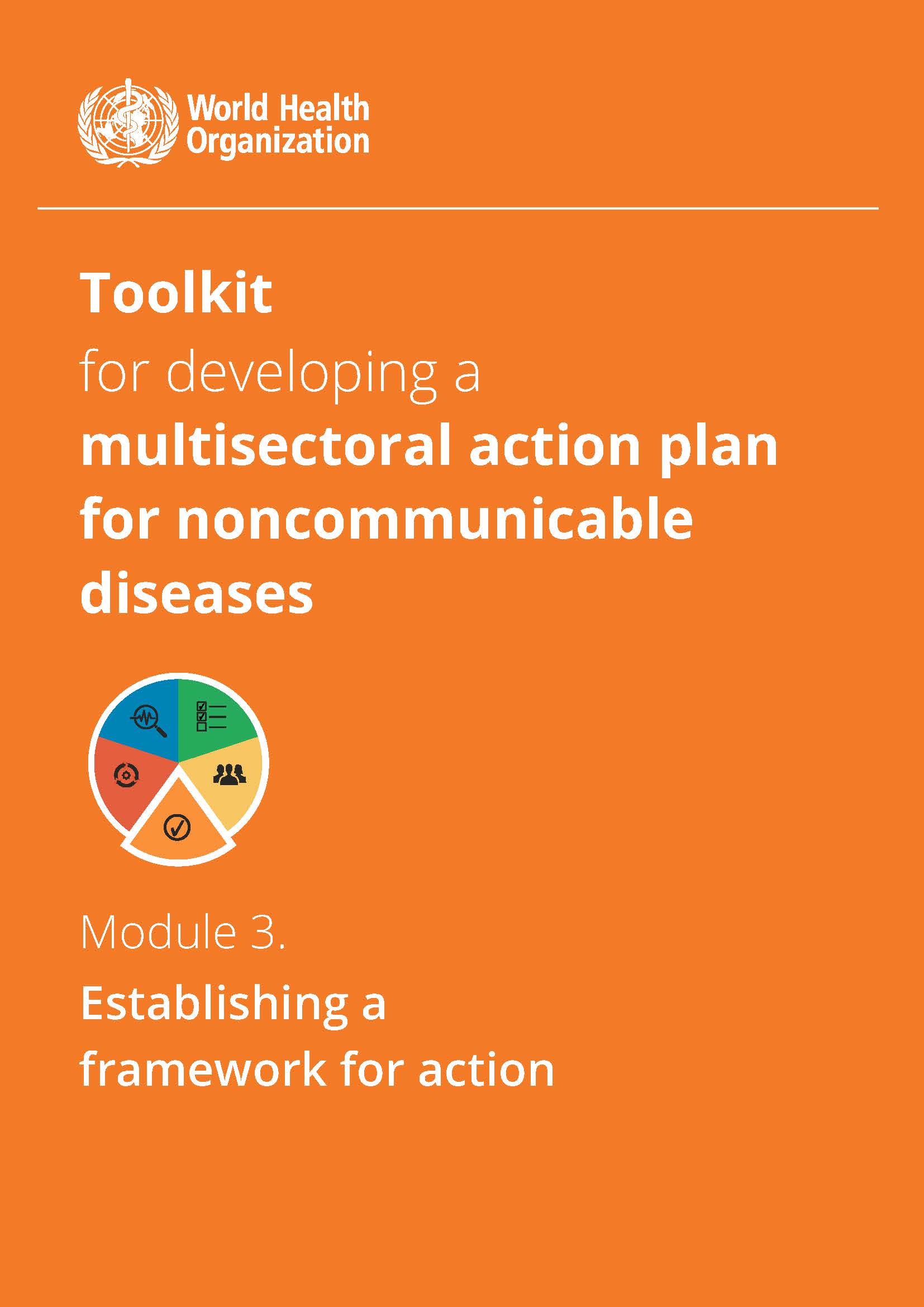
Toolkit for developing a multisectoral action plan for noncommunicable diseases: Module 3: Establishing a framework for action
Publication date: 2022
A framework for action provides a guide for those involved in the development of the multisectoral action plan. It starts with a wide-ranging vision and, through a series of increasingly specific intentions, brings into focus actions with measurable outcomes that can be taken to achieve that vision.
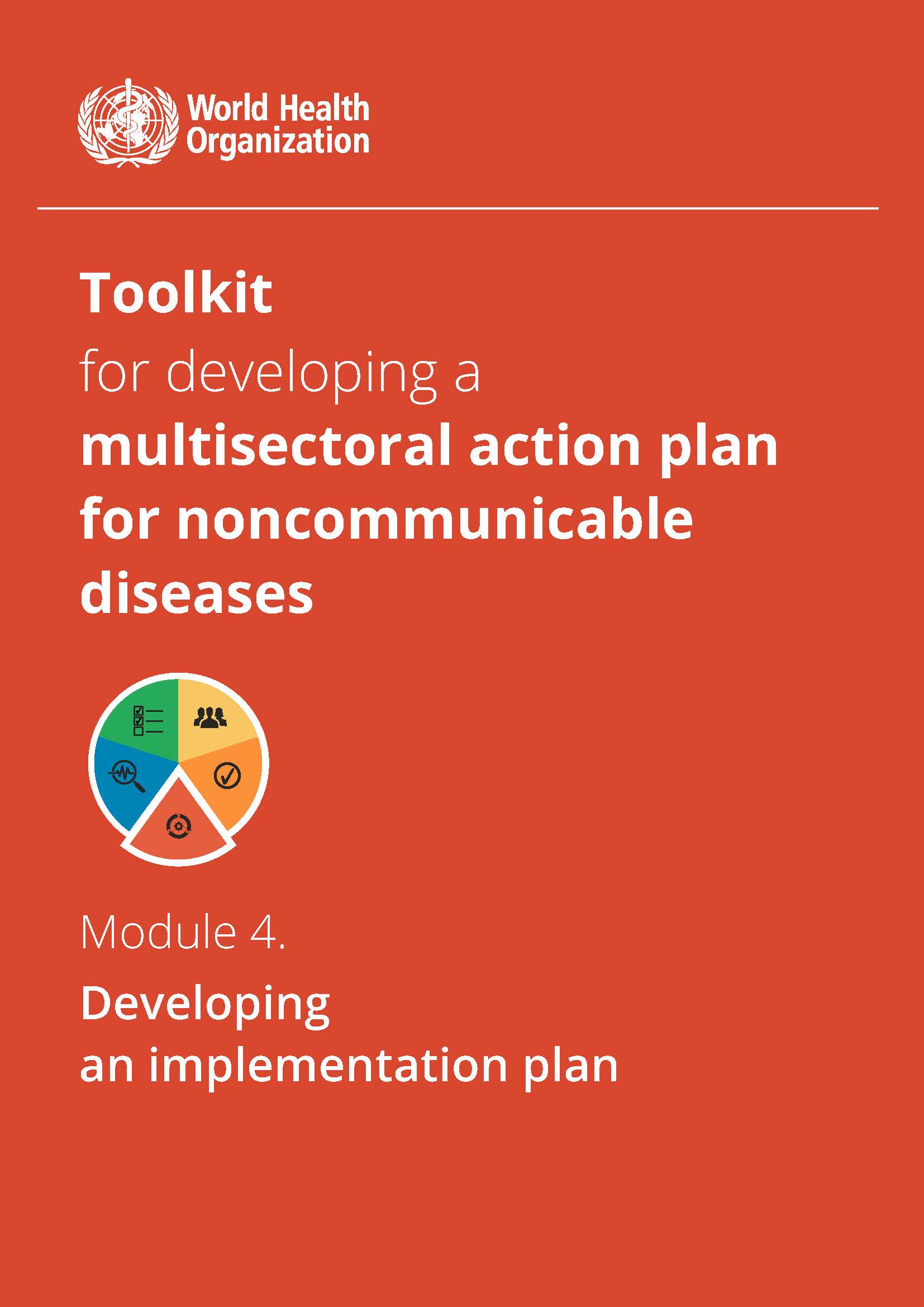
Toolkit for developing a multisectoral action plan for noncommunicable diseases: Module 4: Developing an implementation plan
Publication date: 2022
When considering a multisectoral action plan (MSAP), it is important to take into account various issues relating to its implementation. Implementation is defined as a specified set of activities designed to put into practice an activity or programme. Implementation measures therefore need to be purposeful, and to be described in sufficient detail that independent observers can detect the presence and strength of the specific set of activities related to implementation.
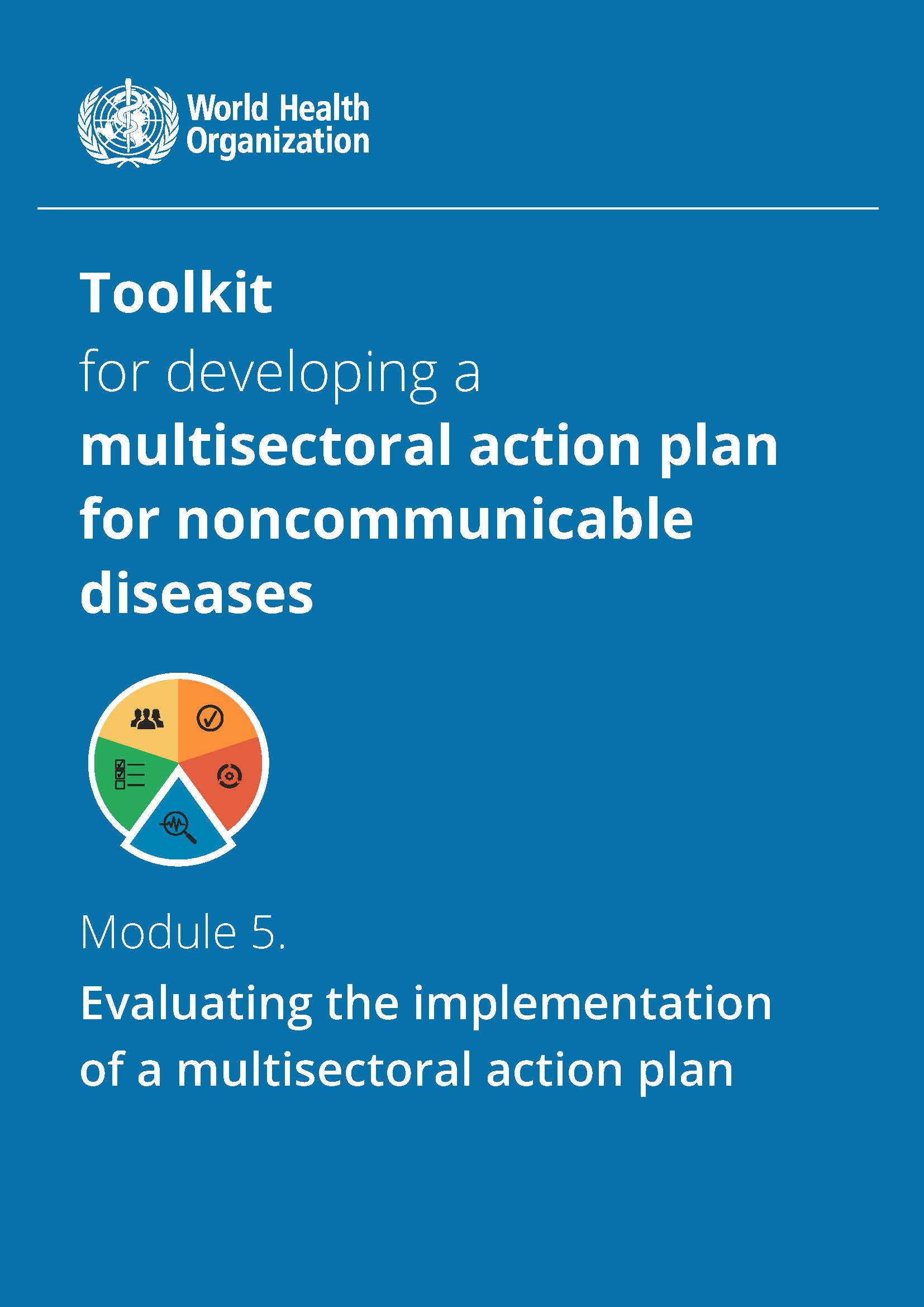
Toolkit for developing a multisectoral action plan for noncommunicable diseases: Module 5: Evaluating the implementation of a multisectoral action plan
Publication date: 2022
Key stakeholders must be involved in the planning, implementation, monitoring and evaluation of NCD plans and programmes. Within a ministry of health there will be different types of stakeholders, such as programme managers and senior managers in departments of prevention, health promotion, and hospital and health services. Other stakeholders may come from ministries for transport, economics, agriculture, and education, funding partners, nongovernmental organizations, civil society and community members. It is critical to ensure that there are clear and accurate descriptions of the policies, plans and programmes, so that all interventions, activities and desired outcomes are clearly understood by all involved in their evaluation.








